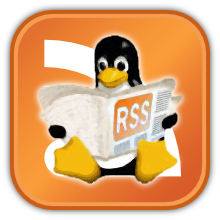Poseidon Linux is a GNU/Linux distribution designed for academic and scientific use.
Although based on Ubuntu, it enhances its parent by adding a large number of applications for GIS/maps, numerical modelling, 2D/3D/4D visualisation, statistics, tools for creating simple and complex graphics, programming languages and more.
The usual software for daily use, such as office suite, Internet browser, instant messaging and chat clients are also included.
Poseidon Linux is full GNU/Linux distribution, a complete operating system, originally based on Kurumin, now based on Ubuntu. It is developed and maintained by a team of young scientists from the Rio Grande Federal University Foundation in Rio Grande do Sul, Brazil, and the MARUM institute, in Germany.
Updates (via Distrowatch):
Gonzalo Velasco has announced the release of Poseidon Linux 4.0, an Ubuntu-based distribution with focus on scientific computing: "Poseidon Linux 4.0 is here. Our new release is based on Ubuntu 10.04 LTS (with 3 years of updates guaranteed by Canonical) as our goals are stability, usability and support for the whole system when used professionally at universities, institutes, colleges and at home. Poseidon Linux is a GNU/Linux distribution designed for the academic and scientific community; it includes a large number of scientific applications, covering areas such as: GIS and geostatistics, visualization, mathematics, statistics, physics, chemistry, CAD, engineering, computer graphics, image editing and vector drawing, numeric modelling and simulation, scientific graphs, scientific authoring...."
Visit the project's home page to read the full release announcement.
Download: Poseidon_Linux4_32bit.iso (3,731MB, MD5).
Recent versions:
• 2011-07-28: Distribution Release: Poseidon Linux 4.0
• 2008-11-27: Distribution Release: Poseidon Linux 3.1
• 2008-07-03: Distribution Release: Poseidon Linux 3.0
Software:
This is the detailed list of the main programs included in Poseidon Linux 3.2:
PS: You didn't saw your favorite software? submit a request by email :-)
GIS/Mapping:
- SPRING 5.0
- GRASS 6.4.0 RC 5+ plugins GDAL 1.4.4 and OGR 1.4.4
- GMT 4.5.2
- PROJ 4.6
- QGIS 1.4 + plugins (including GRASS Plugin)
- Terraview 3.2 Plus
- MB System 5.1.3beta1855
- GPS Manager
- GPS Drive
- Mapserver 5.0 + Pmapper 3.2 (don't work running from live-DVD, just work installed on a PC)
Visualization (2D/3D/4D):
Statistics and Math:
- R 2.9.2 + many libraries (GeoR, GeoRglm, GStat, GAM, GRASS, abind, car, effects, lmtest, multicomp, mvtnorm, relimp, rgl, sandwich, sm, strucchange, zoo) + graphical interface for R (using his library, Rcmdr)
Numerical Modelling:
- Octave 3.0 + Gnuplot
CAD:
- QCAD (2D CAD)
Computer Graphics (CG):
Database:
- Postgresql 8.3 + addon PostGIS 1.3 (module to work with GIS data)
Scientific Authoring:
Scientific Graphics:
Compilers/Programming Languages:
Multimedia:
Office:
- OpenOffice 3.1
Internet:
- Mozilla FireFox
- Thunderbird
- TightVNC
- XChat
- aMSN
- Pidgin
- Evolution
- gFTP
Graphics and Image Editing:
- Gimp 2.4.5
- XFig
- F-Spot
- gThumb
- XSane
- Inkscape
Extras:
- Alien (Convert .RPM to .DEB)
- Vim
- DosBox (DOS emulator)
- Sysutils (Tools to convert ASCII text files from DOS to UNIX, and UNIX to DOS)
- Gnuplot
- Tools for Palm sync
- QEmu (free emulator, runs another OS in a window)
The name ("Poseidon" was the regent of the sea in Greek mythology) derives from the large number of oceanologists involved in the development of the system.
It contains many free software programs used by students, professors, technicians and scientists, such as the Fortran programming language, Kile and Lyx for scientific writing, numerical modeling, 2D/3D/4D visualization, statistics, CAD, Genetics, Bio-Informatics and several tools that support GIS and mapping... along with day-by-day common utilities like LibreOffice (with many spell-checkers), internet surfing, multimedia, etc. (even some games).[2]
Due to its wide acceptance also outside the Portuguese-speaking scientific community and to the eventual shut down of the Kurumin project,[3] the Poseidon project has changed the base distribution to Ubuntu, to allow the installation in Portuguese, Spanish, English, German, French, Greek and more languages. The core of Poseidon is always the Debian family due to the higher stability and great amount of software available into the repository sites. Also, users of any other Debian or Ubuntu derivative distribution would find no trouble to use Poseidon. Many of the supporting material and tutorials apply fully to it.
The current running version is 4.0, and it is based on Ubuntu 10.04 LTS [[1]] 32 bits, and soon 64 bits, since the goal of Poseidon is not to deliver one new distro after another, but to deliver a solid, usable and trustful distro for professional, educational, and home computers, that will be updated when the special packages and the base system requires so.
The 3.x family was pre-presented at the 9th Free Software International Forum (2008) - FISL9.0.[4], and received compliments from many users, free-software enthusiasts, the GNU/Linux community and even from Jon "maddog" Hall, from Linux International. Version 3.2 (previous) was officially released in the IV Brazilian Oceanography Congress, that took place in Rio Grande, Brazil, in May 2010.
Screenshots.
If you liked this article, subscribe to the feed by clicking the image below to keep informed about new contents of the blog:














0 commenti:
Post a Comment